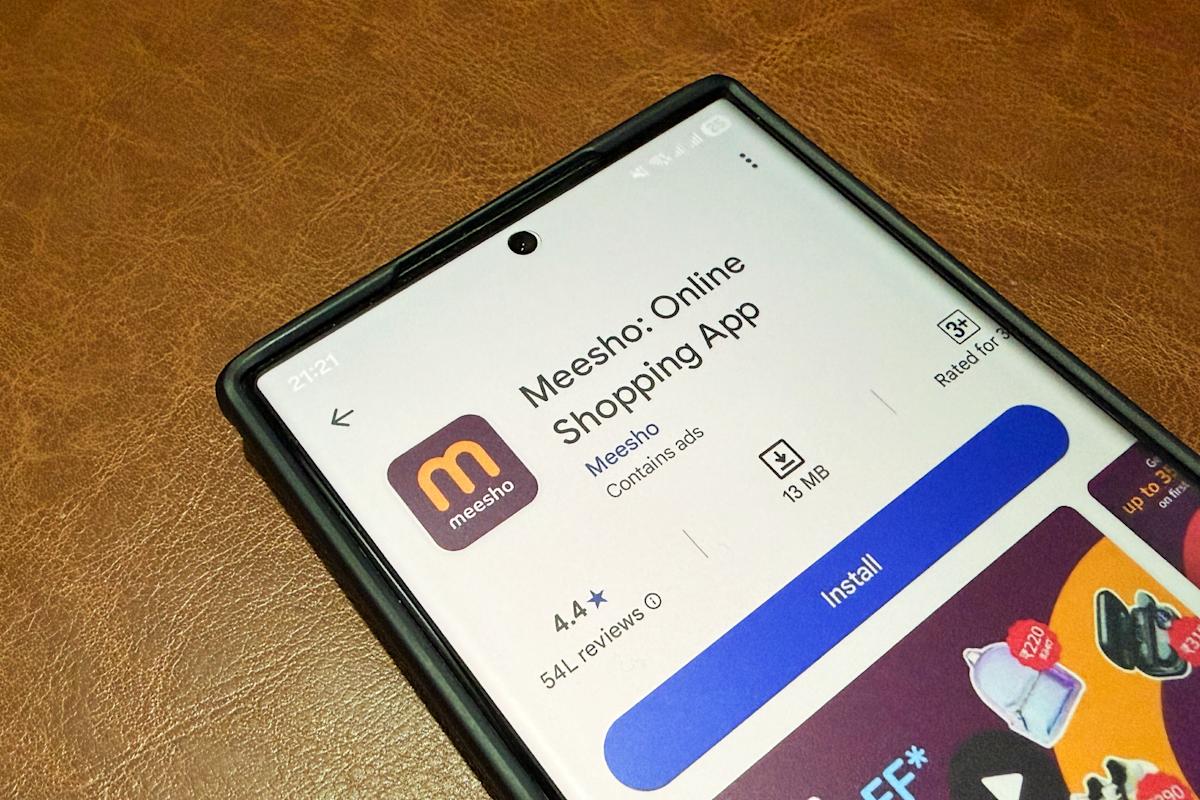Meesho, an Indian e-commerce rival to Amazon and Walmart-owned Flipkart, is set to launch a roughly $606 million IPO marked by token sell-downs from early backers and no sales from big names such as SoftBank and Prosus, signalling investor conviction in India’s booming online retail market at a time when tech shareholders globally have been cashing out at listings.
The ten-year-old startup plans to price its shares at ₹105–111 each, raising ₹42.50 billion (about $475 million) in fresh capital and a small remainder through secondary sales, giving Meesho a post-issue valuation of roughly ₹501 billion (around $5.60 billion). The startup was last valued at about $5 billion in the private markets in 2021.
Meesho is set to become the first major horizontal e-commerce platform in India to go public, with rival Flipkart expected to pursue an IPO next year and Amazon reportedly exploring a potential spin-off of its India operations, potentially for a future listing.
Some of Meesho’s early shareholders are selling in the IPO, with Elevation Capital offloading just over 4% of its stake, Sequoia Capital spin-off Peak XV Partners selling around 3%, and Y Combinator trimming about 14%, per the prospectus (PDF). Larger backers — including SoftBank, Prosus, and Fidelity — are not selling any shares.
Meesho’s offer-for-sale portion has been cut by about 40% from the draft prospectus filed in October to 105.5 million shares, worth ₹11.7 billion (roughly $131 million) at the top of the price band. The co-founders, Vidit Aatrey and Sanjeev Kumar, are, however, selling more than they had planned in the draft prospectus, with their combined offer rising to 32 million shares from about 23.5 million earlier, helping make up for reduced participation from other shareholders.
Founded in 2015, Meesho began as a social commerce platform that targeted first-time online shoppers through WhatsApp before evolving into a full-fledged marketplace. It has since carved out a fast-growing niche with a low-cost model tailored to India’s price-sensitive consumers and small merchants — an approach that has increasingly pressured larger rivals Amazon and Flipkart. The Bengaluru-based company uses a commission-light model, earning primarily from logistics fees, advertising, and other services, while charging commissions on products sold through its separate Meesho Mall channel.
Meesho reported revenue from operations of ₹55.78 billion (about $624.0 million) for the six months ended September 30, up from ₹43.11 billion (around $482.0 million) a year earlier, per its prospectus. Net merchandise value rose 44% year-over-year to ₹191.94 billion (roughly $2.15 billion). However, its losses widened, with Meesho posting a restated loss before tax of ₹4.33 billion (around $48.4 million) for the September 2025 half-year, compared with ₹0.24 billion (about $2.7 million) a year earlier.







